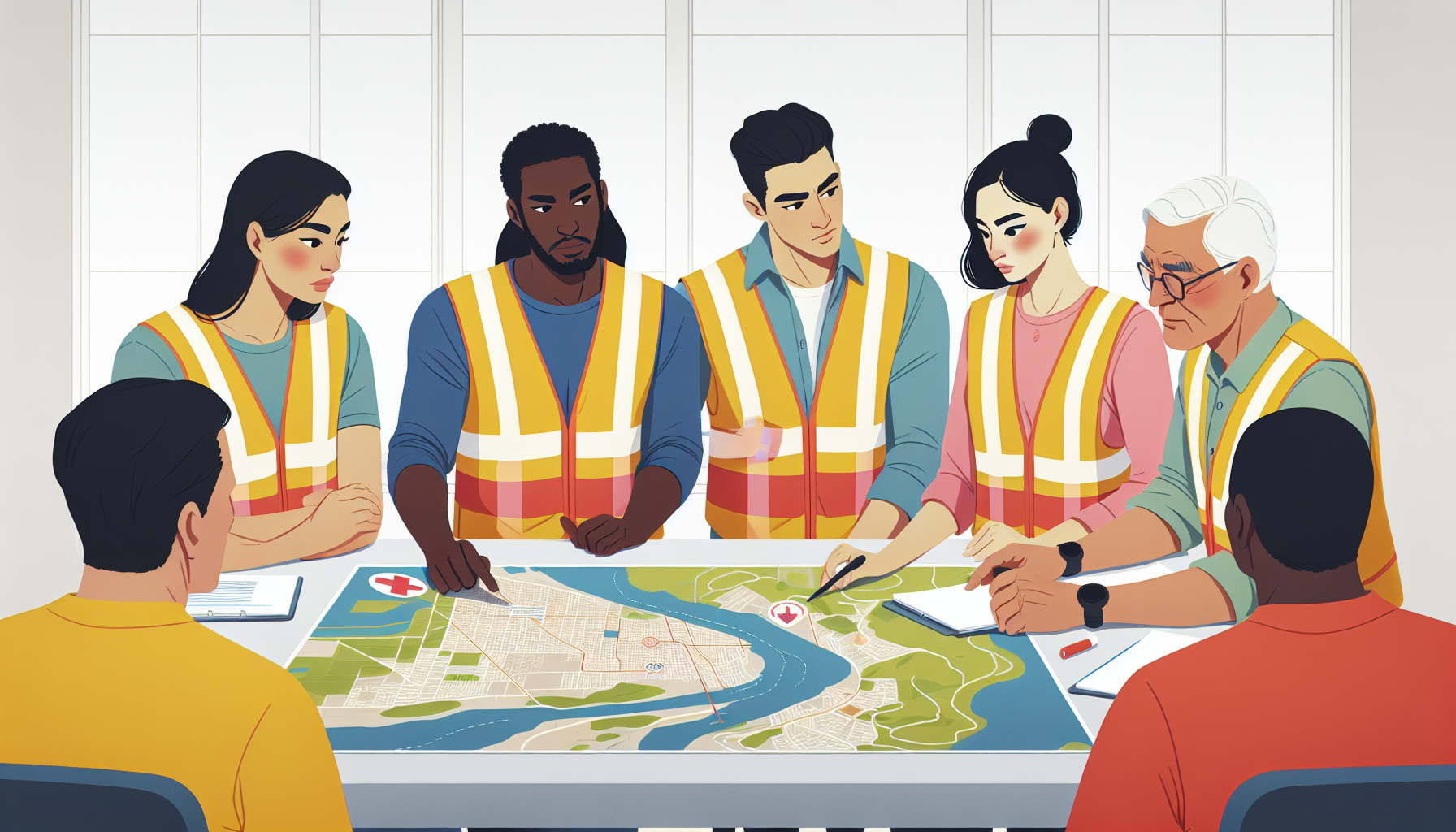Definition
A Disaster Assistance Response Team (DART) is a group of experts in various fields, assembled by a country’s defense or foreign affairs sector to provide immediate relief in the aftermath of large-scale disasters. The team is designed to be self-sufficient and fully deployable within 48 hours, providing initial disaster response until longer term aid operations can be established. DART teams typically offer services such as medical care, clean water, basic sanitation, and critical infrastructure repair.
Key Takeaways
- The Disaster Assistance Response Team (DART) is an armed forces team specifically designed to provide immediate emergency assistance in the aftermath of a significant global disaster.
- DART is able to provide specific services including medical care, engineering help, water purification and other essential services necessary during a disaster recovery period.
- The primary goal of DART is to manage and reduce the immediate suffering caused by such disasters until more long-term aid organizations can arrive and set up.
Importance
The Disaster Assistance Response Team (DART) is a critical component in military operations due to its crucial role in providing immediate humanitarian assistance during times of international emergencies, including natural disasters or other crises.
Armed with the skills and capacity in providing medical care, clean water, and infrastructure repairs among other necessities to disaster-stricken areas, DART plays a key role in contributing to the immediate alleviation of suffering and maintaining human dignity during disasters.
Its existence underscores the military’s commitment to humanitarian aid and establishes a nexus between military operations and humanitarian response, showcasing the integrated approach to addressing crisis situations.
Explanation
The Disaster Assistance Response Team (DART) is fundamentally a specialized unit within the military operations designed to rapidly respond to global emergencies. Its primary purpose is to provide immediate relief and assistance in the aftermath of significant disasters, predominantly those that exceed the response capacity of national and regional entities.
The creation of DARTs emanates from an understanding that rapid and immediate response to disasters is vital in mitigating the hardships that affected populations experience, hence serving a pivotal role in lessening human suffering. Disaster Assistance Response Teams can be utilized in a broad range of missions, all aimed at minimizing the impact of catastrophic events on human life.
This includes providing emergency medical services, clean water, food, shelter, and communication support in disaster-stricken regions. In addition to providing immediate relief, DARTs usually work in conjunction with other organizations such as local response units, Non-Governmental Organizations (NGOs), and international partners to facilitate lasting recovery and build more resilient communities.
Thus, apart from merely addressing immediate needs, DARTs are invested in long-term stability and disaster preparedness, further underlining their critical role in global disaster management.
Examples of Disaster assistance response team (DART)
Nepal Earthquake (2015): In the aftermath of a devastating
8 magnitude earthquake in Nepal, Canada sent its Disaster Assistance Response Team to provide aid. The DART worked with local officials and organizations to provide emergency help, such as medical treatment, clean drinking water, and help with search and rescue operations.
Typhoon Haiyan in the Philippines (2013): After Typhoon Haiyan struck the Philippines, Canada’s DART was deployed to the region to provide aid. They assisted in providing basic medical care, repairing critical infrastructure, and purifying water. This was instrumental in helping to control disease outbreaks and providing some relief to the displaced population.
Earthquake in Pakistan (2005): Following a severe earthquake in Pakistan, the United States deployed its Disaster Assistance Response Team to provide support. DART was highly engaged in the provision of immediate life-saving assistance, rescue and relief operations, and in delivering essential commodities like food, clean water and medical supplies to those affected in this disaster.
FAQs on Disaster Assistance Response Team (DART)
What is DART?
The Disaster Assistance Response Team (DART) is an elite team within the military that is specifically trained to respond to international humanitarian disasters by providing aid and relief.
What is the purpose of DART?
The main purpose of the DART is to save lives, alleviate suffering, and maintain the dignity of those affected by disasters or conflict by providing immediate assistance where needed.
Who makes up the DART?
The DART is composed of specialists drawn from across the military, including medical professionals, engineers, logisticians, security personnel, communications experts and many more.
When is DART deployed?
DART is rapidly deployed in response to international disasters, usually within 48 hours of a decision to deploy. This quick response time allows them to begin their aid and relief duties as soon as possible.
How does DART assist in disaster-stricken areas?
DART provides immediate aid and relief in disaster-stricken areas. They are capable of setting up medical treatment facilities, providing clean water, making necessary repairs to infrastructure, distributing food and other vital supplies, providing security, and coordinating relief efforts with other organizations on the ground.
Related Military Operation Terms
- Emergency Management Coordination
- Disaster Recovery Plan
Sources for More Information
Sure, here are the sources:
- Department of National Defence and the Canadian Armed Forces: This is the governmental organization responsible for managing Canada’s defense resources. They operate the DART (Disaster Assistance Response Team).
- American Red Cross: The American Red Cross works closely with governmental organizations like the DART and provides significant disaster response services.
- United Nations: As an international governing body, the United Nations coordinates multiple disaster response teams, including DARTs, from different countries.
- USAID: The United States Agency for International Development operates its own Disaster Assistance Response Teams and works in close collaboration with similar organizations worldwide.
 Benefits.com Advisors
Benefits.com Advisors
With expertise spanning local, state, and federal benefit programs, our team is dedicated to guiding individuals towards the perfect program tailored to their unique circumstances.
Rise to the top with Peak Benefits!
Join our Peak Benefits Newsletter for the latest news, resources, and offers on all things government benefits.



















